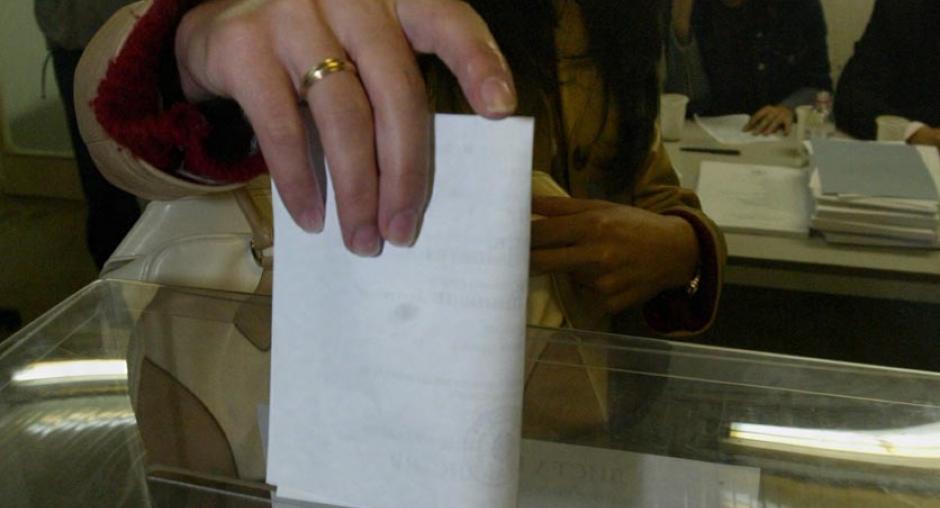Newsroom
International observers concerned about deepening political impasse after Serbia's second failed presidential election
BELGRADE 9 December 2002

Voter turnout for the repeat presidential elections in Serbia on 8 December 2002 was again insufficient. (Milan Obradovic) Photo details
BELGRADE, 9 December 2002 - Following yesterday's repeat presidential election in Serbia, which again failed due to insufficient voter turnout, the international observers from the OSCE's Office for Democratic Institutions and Human Rights (ODIHR) and the Council of Europe's Parliamentary Assembly expressed concern about the deepening political impasse in the Republic.
"The second failure within two months to elect a new Serbian President comes at a considerable cost with regard to public confidence in elections and Serbia's international credibility", said Nikolai Vulchanov, Head of the OSCE/ODIHR Election Observation Mission. "The decision of important parts of the political spectrum not to field candidates contributed to the low level of public participation by limiting the voters' choice and thus aggravated the current political deadlock."
"We are very concerned about the negative consequences this unresolved impasse could have for the future of Serbia's reform process", said Thomas M. Cox, Head of the delegation of the Council of Europe's Parliamentary Assembly. "We call on all political forces and civil society to increase their efforts to strengthen public confidence in Serbia's democratic institutions as a matter of priority. Consideration could also be given to removing the 50 per cent minimum turnout provision for the first round."
The international observer mission expressed concern about the campaign of one of the candidates, Vojislav Seselj, whose TV advertisements included bellicose images displaying the candidate during the wars in the previous decade together with his paramilitary forces and Radovan Karadzic, as well as a skull placed as a trophy on the hood of his car.
The observers welcomed the amendments to the election legislation adopted by Parliament after an earlier attempt to elect a new President had failed in October. While these amendments include the removal of the turnout requirement for the second round and several other improvements, as recommended by the ODIHR, the election legislation still contains a number of significant shortcomings, including rules that disenfranchise voters living abroad, who are temporarily absent from their permanent residence, or who are homebound.
"The second failure within two months to elect a new Serbian President comes at a considerable cost with regard to public confidence in elections and Serbia's international credibility", said Nikolai Vulchanov, Head of the OSCE/ODIHR Election Observation Mission. "The decision of important parts of the political spectrum not to field candidates contributed to the low level of public participation by limiting the voters' choice and thus aggravated the current political deadlock."
"We are very concerned about the negative consequences this unresolved impasse could have for the future of Serbia's reform process", said Thomas M. Cox, Head of the delegation of the Council of Europe's Parliamentary Assembly. "We call on all political forces and civil society to increase their efforts to strengthen public confidence in Serbia's democratic institutions as a matter of priority. Consideration could also be given to removing the 50 per cent minimum turnout provision for the first round."
The international observer mission expressed concern about the campaign of one of the candidates, Vojislav Seselj, whose TV advertisements included bellicose images displaying the candidate during the wars in the previous decade together with his paramilitary forces and Radovan Karadzic, as well as a skull placed as a trophy on the hood of his car.
The observers welcomed the amendments to the election legislation adopted by Parliament after an earlier attempt to elect a new President had failed in October. While these amendments include the removal of the turnout requirement for the second round and several other improvements, as recommended by the ODIHR, the election legislation still contains a number of significant shortcomings, including rules that disenfranchise voters living abroad, who are temporarily absent from their permanent residence, or who are homebound.
